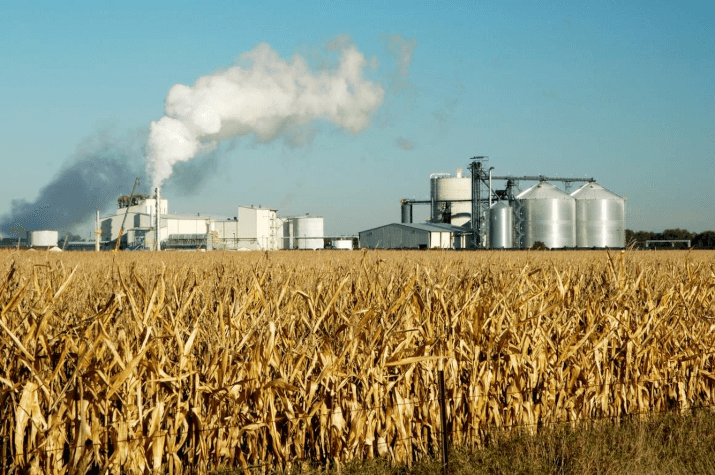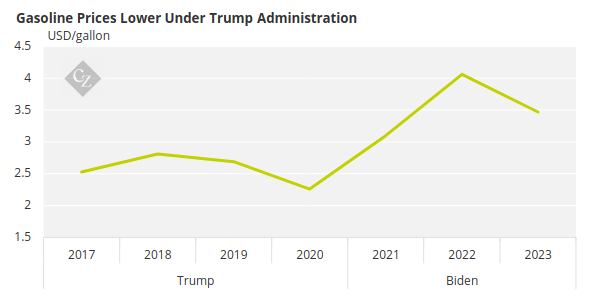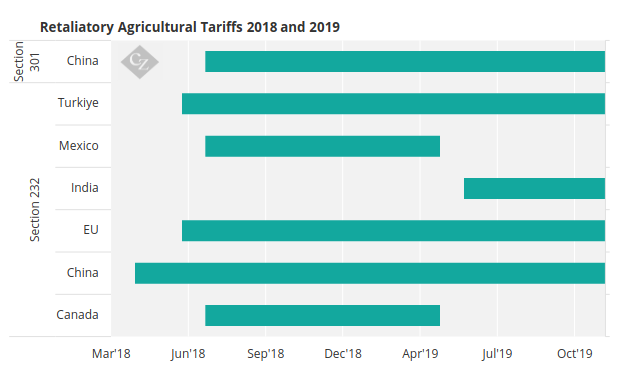Insight Focus
Major ethanol trade groups are committed to expanding E15 use. They aim to lower fuel costs and boost domestic production. However, trade policies raise concerns for farmers and biofuels.
Ethanol Groups Pledge Support for Trump and E15 Expansion
The major trade groups of the US ethanol industry congratulated Donald Trump on his decisive victory in the recent election as he secured a second term as president.
The Renewable Fuels Association (RFA), Growth Energy and the Iowa Renewable Fuels Association (IRFA) said they are committed to working with the new administration to expand the use of E15.
“On behalf of our nation’s ethanol industry, we congratulate Donald Trump on his election as our next President,” said Geoff Cooper, president and CEO of the RFA. “We share his vision for putting American energy first, stimulating growth in domestic production, lowering fuel costs for consumers, and restoring balance and fairness in the global trade of energy commodities.”
He added that the organisations look forward to working with his administration in the years ahead “to strengthen and expand the market for renewable fuels like ethanol.”

Political Benefits of Ethanol
Cooper said that Trump understands that ethanol lowers fuel costs, reduces dependence on foreign energy sources, helps farmers and boosts the rural economy while protecting the environment.
Growth Energy CEO Emily Skor agreed that the president-elect has championed consumer access to US-made, lower-cost ethanol options at the pump and has expanded markets for US ethanol.
“We look forward to working with the Trump-Vance administration to deliver on American energy dominance, consumer savings and booming rural economies – starting with year-round access to E15,” she said.
Skor also noted that during his first term, President Trump delivered on E15, providing lower-cost fuel to US consumers. She emphasised that Growth Energy supports his efforts to implement a permanent solution that ensures ongoing savings at the pump for everyone in the US, year-round.

Source: EIA
Mixed Opinions on Trump’s Impact on Biofuels
Despite the rosy sentiments from the industry groups, farmers and ethanol producers are concerned about the potential impact of Trump’s policies on the biofuels industry and US agriculture.
Policies on trade, tariffs, government funding and energy will be dealt with in the early months of the new administration. Trump’s frequent call for big tariffs on imported goods and commodities, particularly from China, are causing stress within agricultural markets.

Source: USDA
A 2022 USDA Report estimated US losses from retaliatory tariffs imposed during Trump’s first term at USD 13.2 billion across all commodities, negatively impacting US agricultural exports.

However, there is some optimism, as many in the agricultural community believe Trump could be beneficial for the biofuels industry.
Rich Nelson, chief strategist at agricultural research and trading firm Allendale, told reporters that the long-term outlook for biofuels remains positive. “There are open questions that complicate a simple pivot away from electric vehicles (EVS) and toward biofuels,” he said.
As one auto industry pundit noted, the future of EVs is much murkier than it was yesterday.












